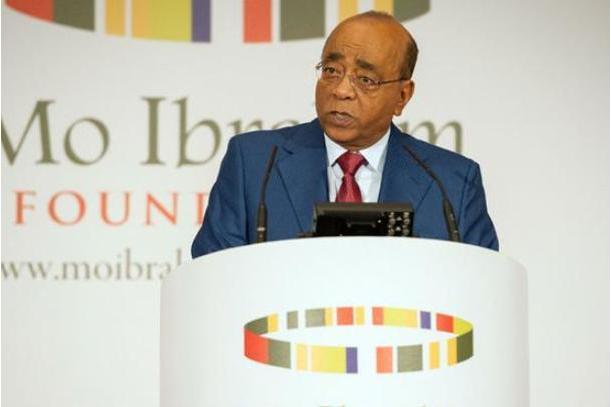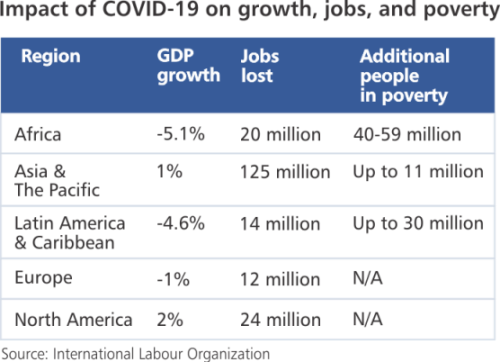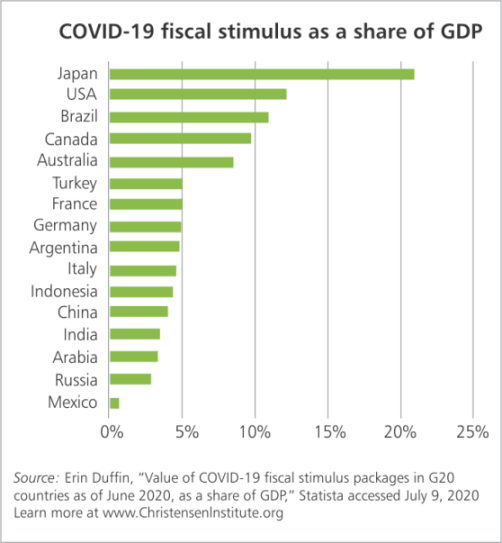COVID-19 exposes our prosperity problem

Feature Highlight
Market-creating innovations trigger an entrepreneurial culture.
From the increasing number of new cases and deaths to the rise in unemployment, the global pandemic is unprecedented in the way it has affected virtually everyone on the planet. As a result, governments, businesses, and nonprofit organizations have channelled much of their efforts to deal with the virus and its aftermath. But by focusing almost entirely on near-term relief, global leaders miss an opportunity to tackle a deeper problem. The pandemic – and its effects on particular populations – highlights a global prosperity problem that should be addressed with just as much urgency.
The pandemic disproportionately affects the poor
As the virus spreads globally, it’s having a disproportionate effect on the lives of people living in poverty, especially those in emerging economies. The World Bank suggests that for the first time since 1998, global poverty (people living on less than $2 a day) will increase. Some projections estimate that more than 400 million people could fall back into poverty as investment, trade, and remittances take a significant hit. Already, the economic effects in poor countries far outweigh those in wealthier countries. Part of the reason for this is due to the inability of emerging economies to respond.
Since the pandemic began to wreak havoc on the world, wealthy countries have passed stimulus packages to support citizens in their economies. In addition, as wealthy economies have enacted shelter in place laws, many citizens have still been able to work, shop, and learn from home.
By contrast, the ability of governments in emerging economies to respond to the effects of the pandemic has been limited. Unable to offer social safety nets like low-interest loans, unemployment benefits, or relief in the form of cheques, their citizens are feeling the effects more deeply as they go without pay. 
Solving the prosperity problem
It’s clear that when countries become prosperous, their ability to withstand and bounce back from a crisis is significantly strengthened. But how can emerging economies do so when billions of dollars of aid have failed to create a sustainable path to escape poverty? In our recent paper, Avoiding the prosperity paradox: How to build economic resilience in a post-COVID world, we explain that investing in market-creating innovations is the critical missing piece in the prosperity puzzle.
Market-creating innovations transform complicated and expensive products into simple and affordable ones so many more people can have access to them. In doing so they necessarily create many jobs to make, market, and distribute the new innovations. They also generate profits that not only make the new markets sustainable, but provide taxes to help fund public services such as education, infrastructure, and healthcare. Lastly, market-creating innovations trigger an entrepreneurial culture. As entrepreneurs, investors, and governments experience the benefits of successful new markets, they become inspired to invest more heavily in these powerful innovations, creating a domino effect of development.
For instance, in the late 1990s mobile phones were deemed too expensive for a majority of people in Africa, and the severe lack of infrastructure made setting up a mobile telecommunications market seem implausible. But in 1998, Mo Ibrahim built Celtel and developed a business model that made inexpensive mobile phones accessible to millions of people in several African countries. From just a handful of mobile telecommunications operators in Africa a few decades ago, today there are more than 100. As a result, the $200 billion telecommunications industry now hosts close to half a billion cell phone subscriptions in Africa, supports roughly four million jobs, and adds around $20 billion in taxes annually.
COVID-19 has shut down schools, closed the doors to restaurants and businesses, and essentially extinguished economic activity. But the disproportionate effect of the pandemic on the poor and the inability of many nations to respond highlight a deeper global prosperity problem. Global leaders may not be able to prevent future economic crises from occurring, but they can work to ensure all nations are prosperous enough to respond adequately.
Efosa Ojomo is a senior research fellow at the Christensen Institute, and co-author of “The Prosperity Paradox: How Innovation Can Lift Nations Out of Poverty.” Efosa researches, writes, and speaks about ways in which innovation can transform organizations and create inclusive prosperity for many in emerging markets.
The article is published under the editorial partnership between Financial Nigeria and the Clayton Christensen Institute, to promote market innovation.
Other Features
-
Can you earn consistently on Pocket Option? Myths vs. Facts breakdown
We decided to dispel some myths, and look squarely at the facts, based on trading principles and realistic ...
-
How much is a $100 Steam Gift Card in naira today?
2026 Complete Guide to Steam Card Rates, Best Platforms, and How to Sell Safely in Nigeria.
-
Trade-barrier analytics and their impact on Nigeria’s supply ...
Nigeria’s consumer economy is structurally exposed to global supply chain shocks due to deep import dependence ...
-
A short note on assessing market-creating opportunities
We have researched and determined a practical set of factors that funders can analyse when assessing market-creating ...
-
Rethinking inequality: What if it’s a feature, not a bug?
When the higher levels of a hierarchy enable the flourishing of the lower levels, prosperity expands from the roots ...
-
Are we in a financial bubble?
There are at least four ways to determine when a bubble is building in financial markets.
-
Powering financial inclusion across Africa with real-time digital ...
Nigeria is a leader in real-time digital payments, not only in Africa but globally also.
-
Analysis of NERC draft Net Billing Regulations 2025
The draft regulation represents a significant step towards integrating renewable energy at the distribution level of ...
-
The need for safeguards in using chatbots in education and healthcare
Without deliberate efforts the generative AI race could destabilise the very sectors it seeks to transform.
Most Popular News
- NDIC pledges support towards financial system stability
- Artificial intelligence can help to reduce youth unemployment in Africa – ...
- Africa needs €240 billion in factoring volumes for SME-led transformation
- ChatGPT is now the most-downloaded app – report
- Green economy to surpass $7 trillion in annual value by 2030 – WEF
- CBN licences 82 bureaux de change under revised guidelines












